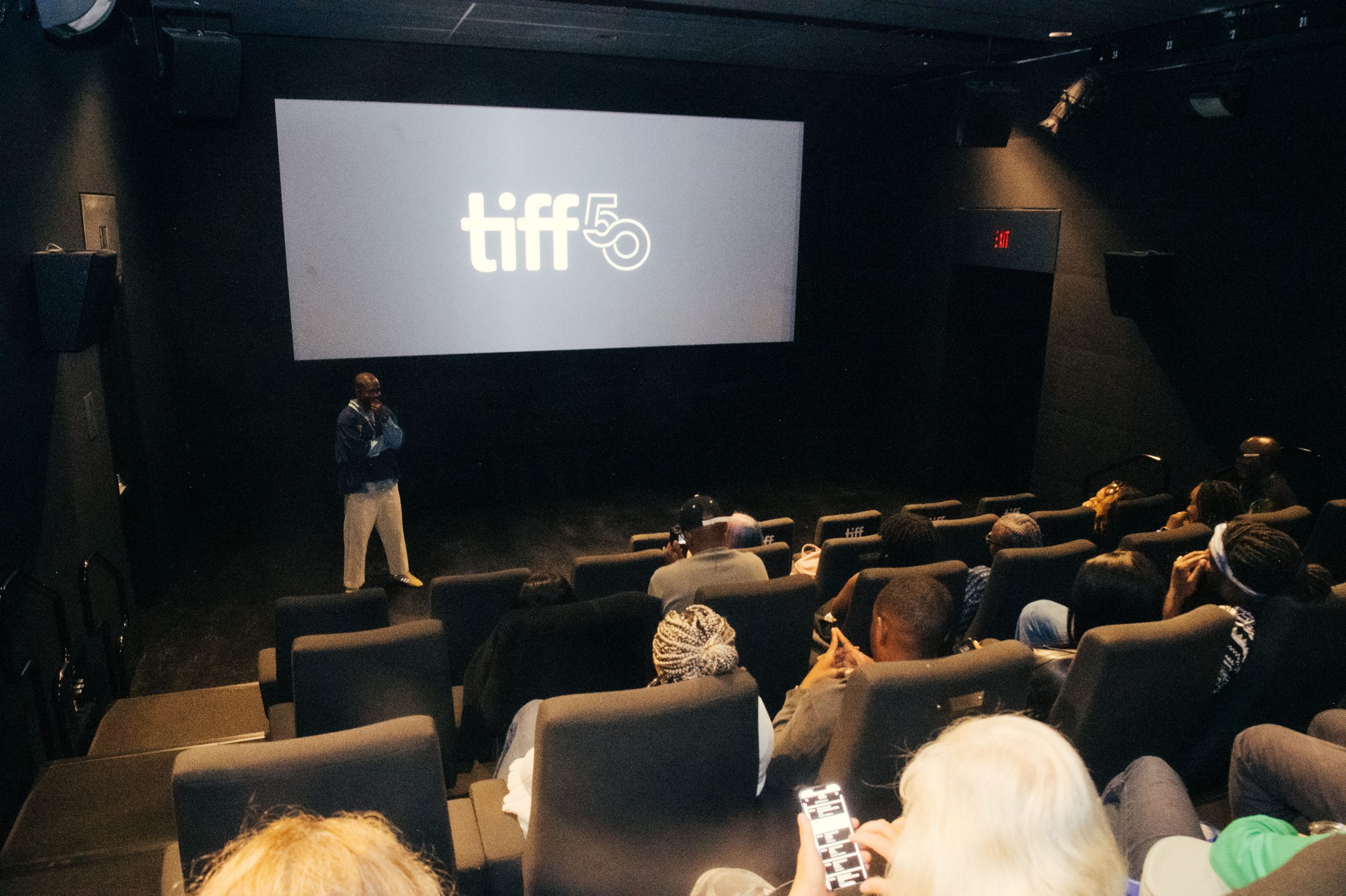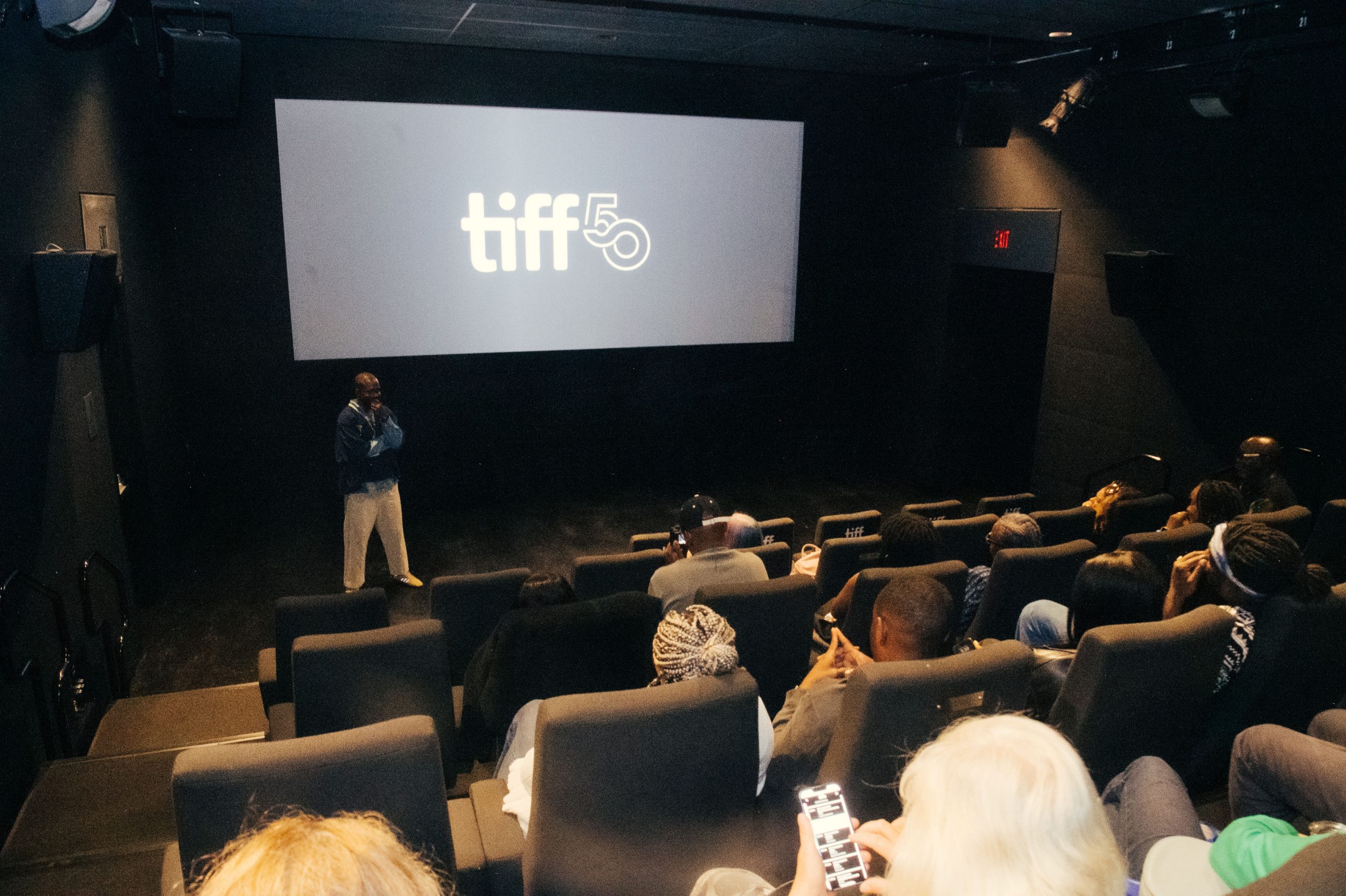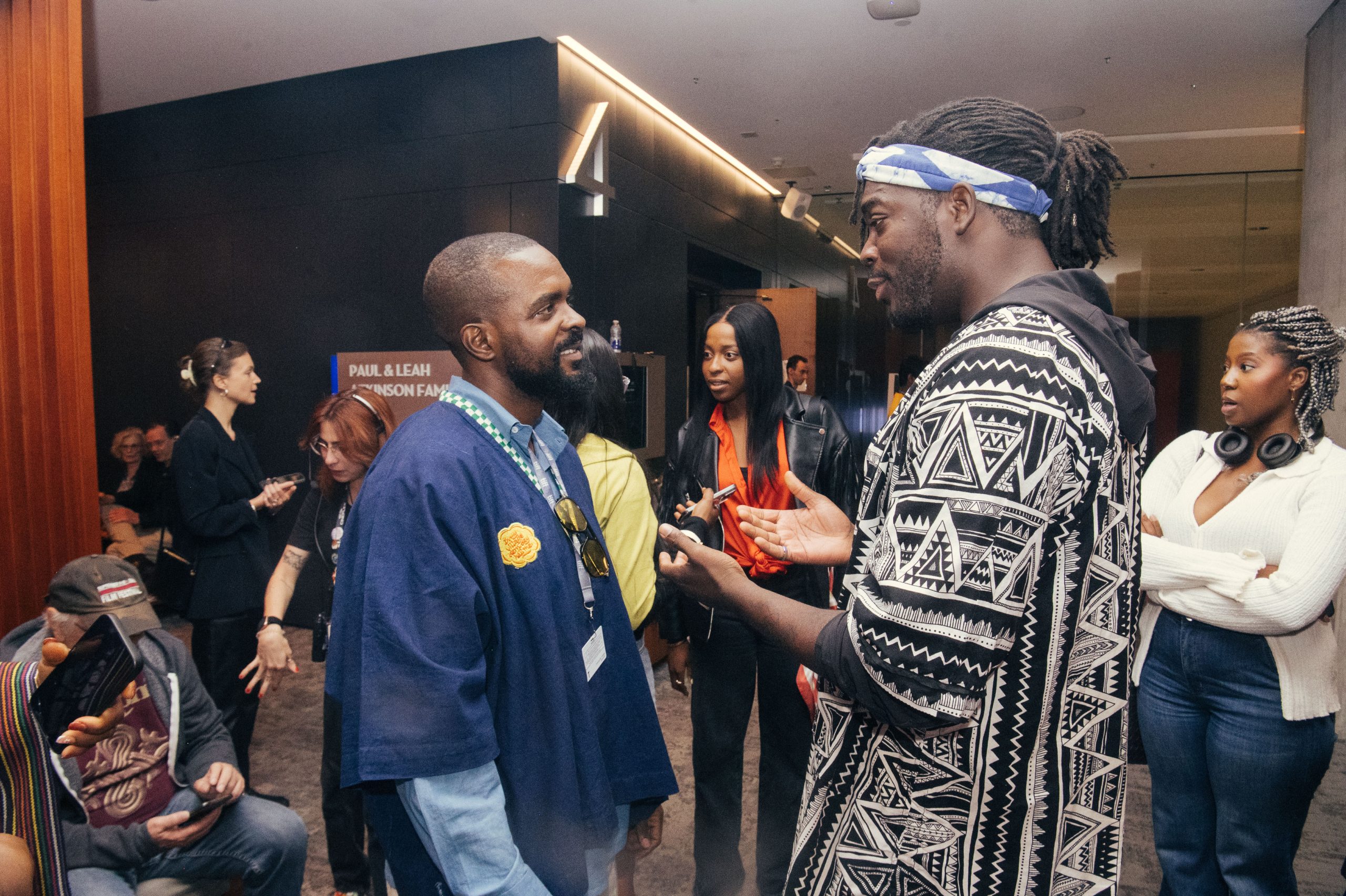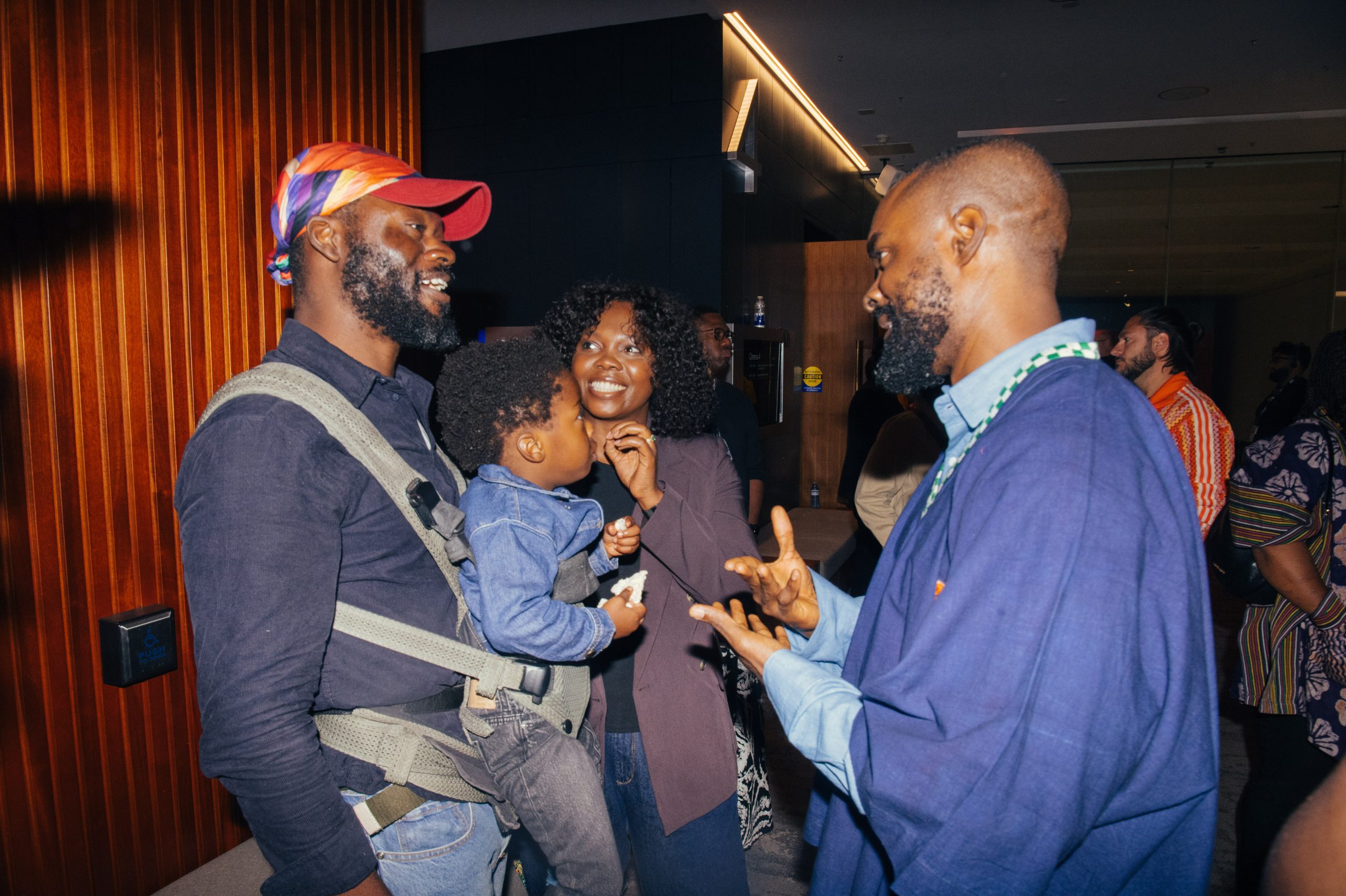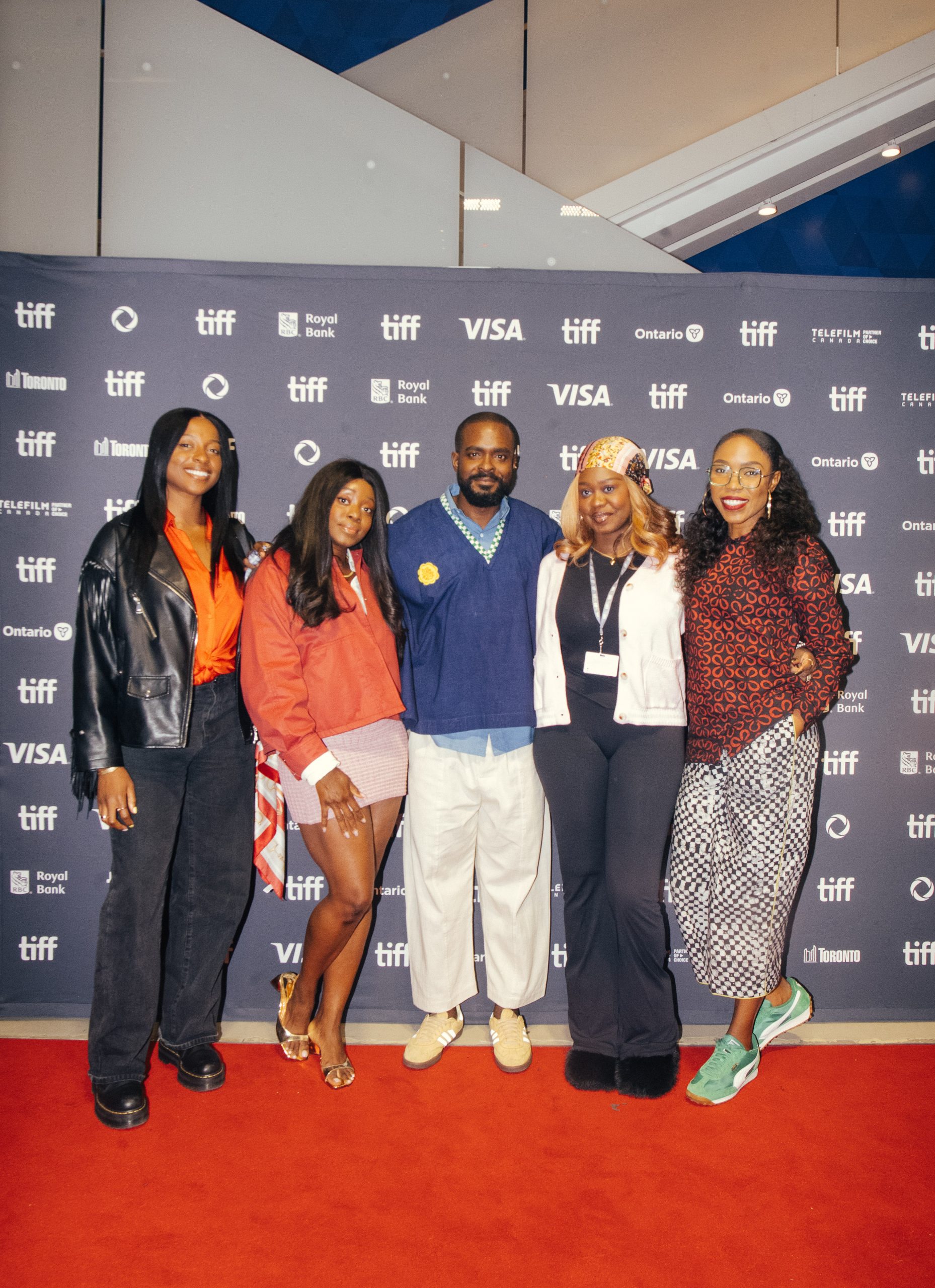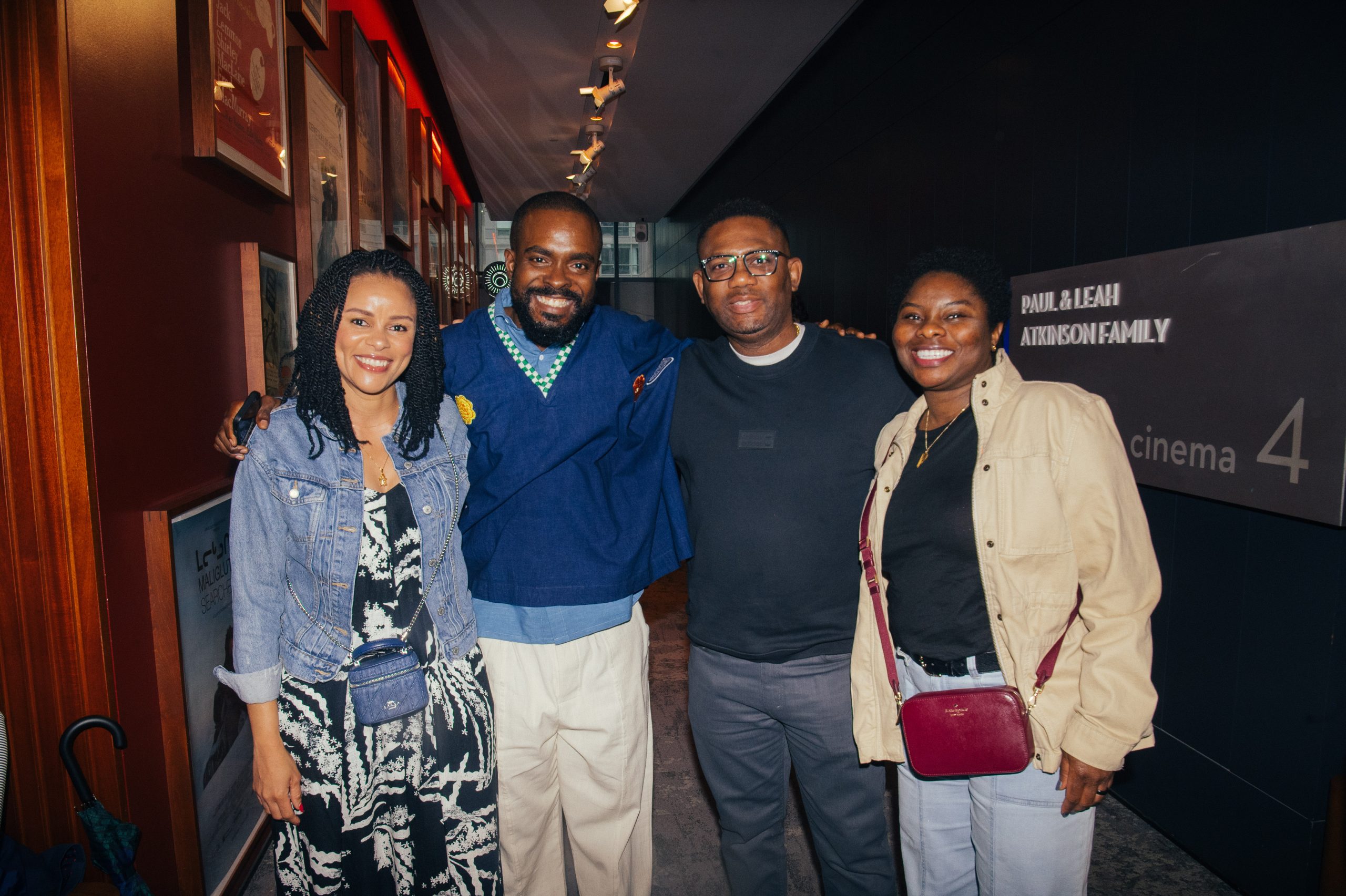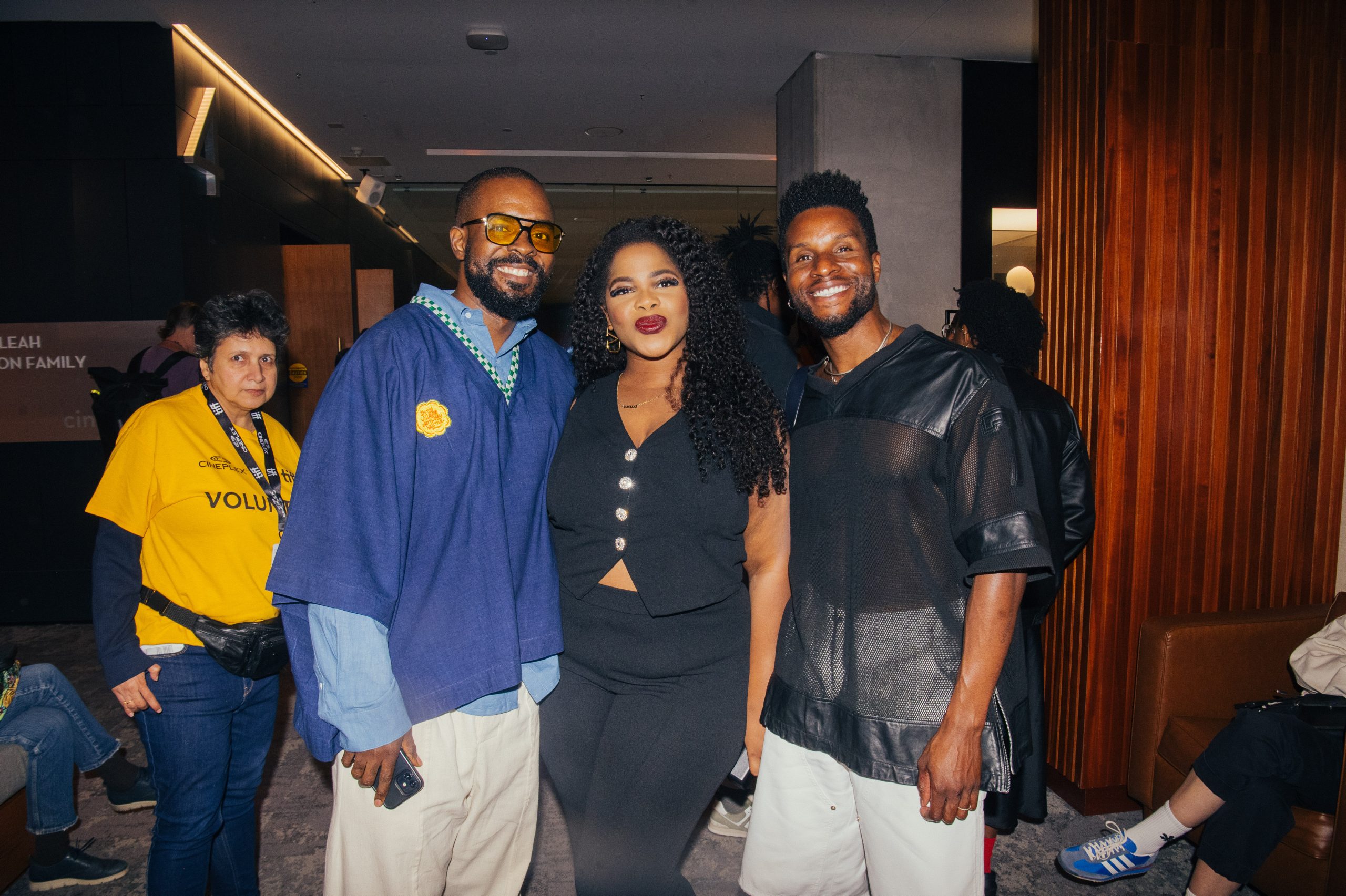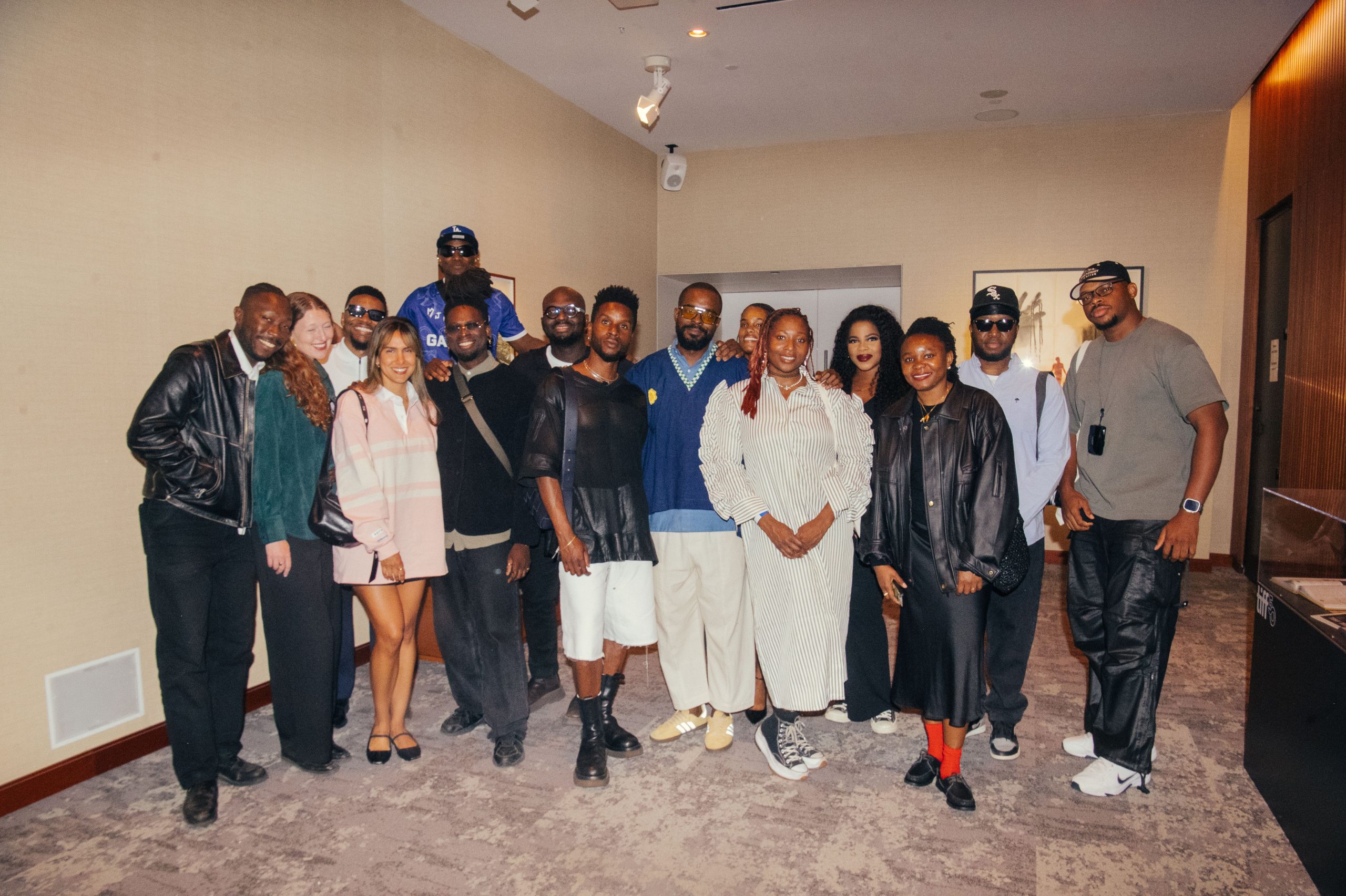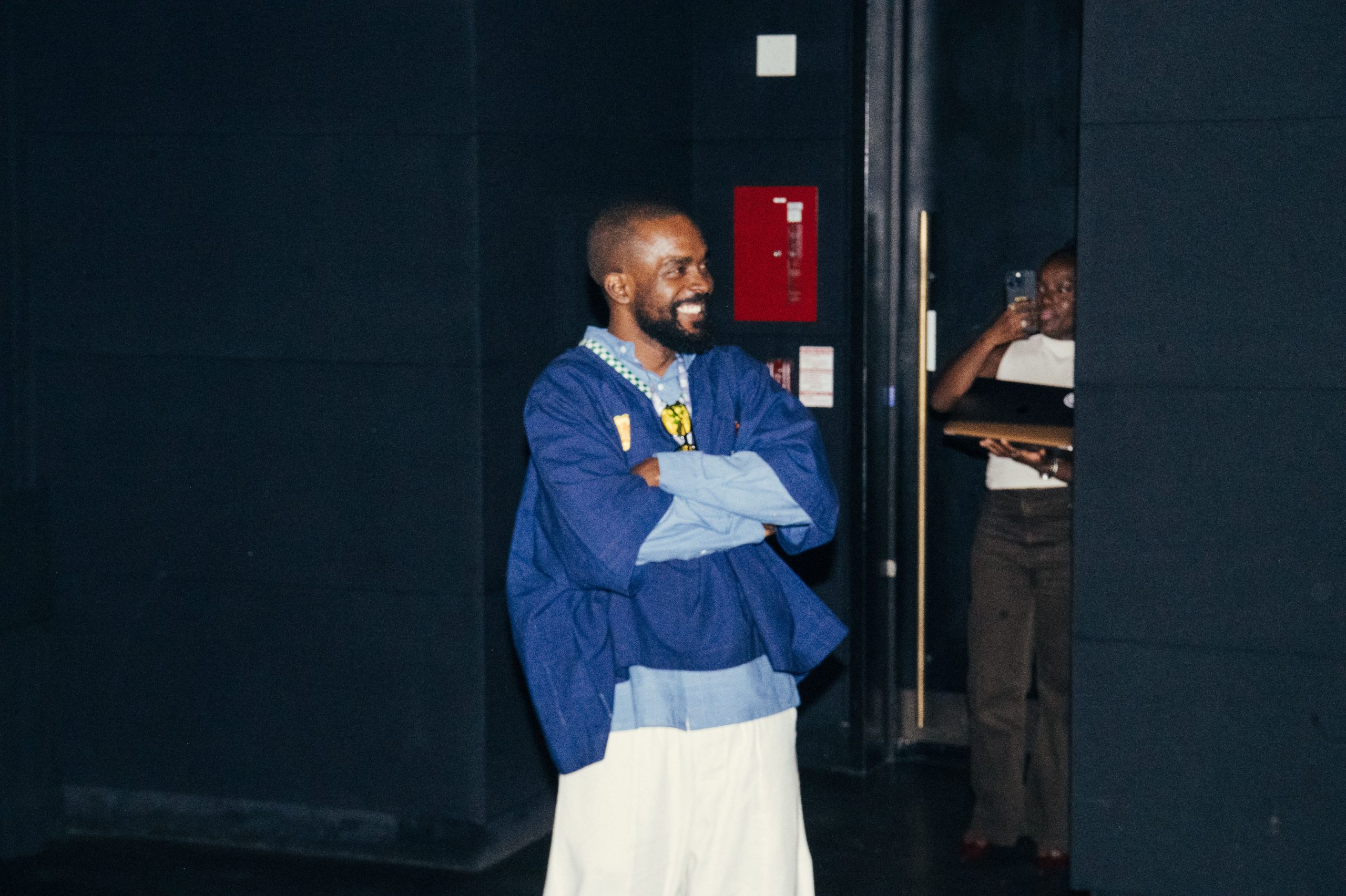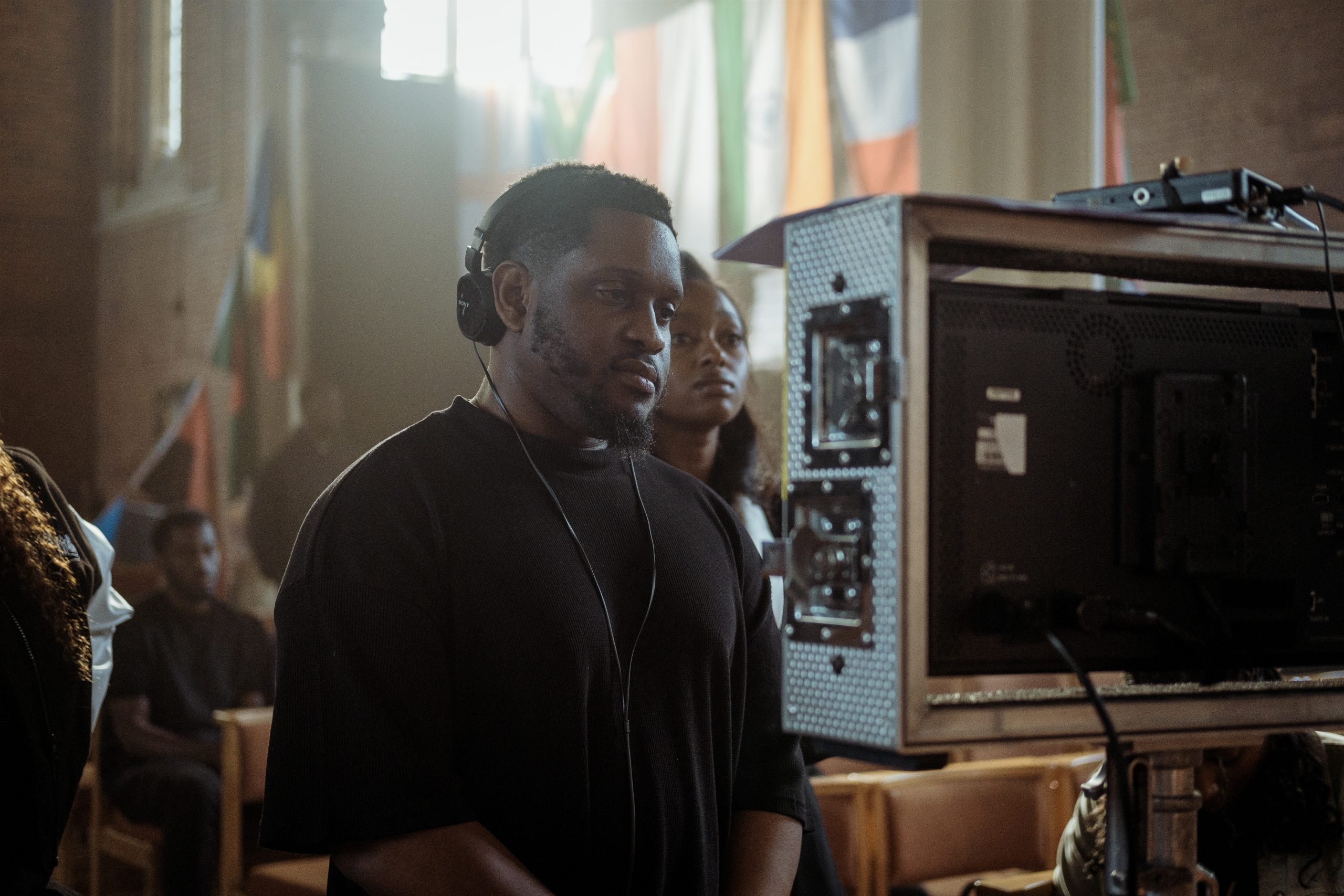Filmmaker Tolu Itegboje is taking bold steps in showcasing African cinema on the global stage. At the Toronto International Film Festival (TIFF 2025), his short film Bam Bam had its market screening — a milestone that speaks to the growing presence and recognition of African stories in international spaces.
In our exclusive interview, Tolu opens up about his TIFF journey, the lessons learned behind the scenes, and what this achievement means for his career as a filmmaker.
Could you tell us a little about yourself and your journey into filmmaking?
Tolu: My name is Tolulope Itegboje. I’m a Nigerian writer and director.
I’ve always loved films, but the first time I thought seriously about becoming a filmmaker was watching The Lord of the Rings. Beyond the spectacle, I felt such a deep connection to what the filmmakers had done with the story and the characters that I thought, maybe I could do that too.
That curiosity led me to a film elective in college where I learned basic camera principle, framing, lighting e.t.c. and then an editing. And that gave me the confidence to start creating on my own. During my NYSC, I worked with a production company and that experience pushed me to take the leap into film school, where I was fully immersed into every aspect of filmmaking – cinematography, sound, producing, directing, production design e.t.c.
There I made a number of short films, including my graduation film The Amazing Grace Church of God. By then, I knew this wasn’t just an interest anymore — I could really call myself a filmmaker.
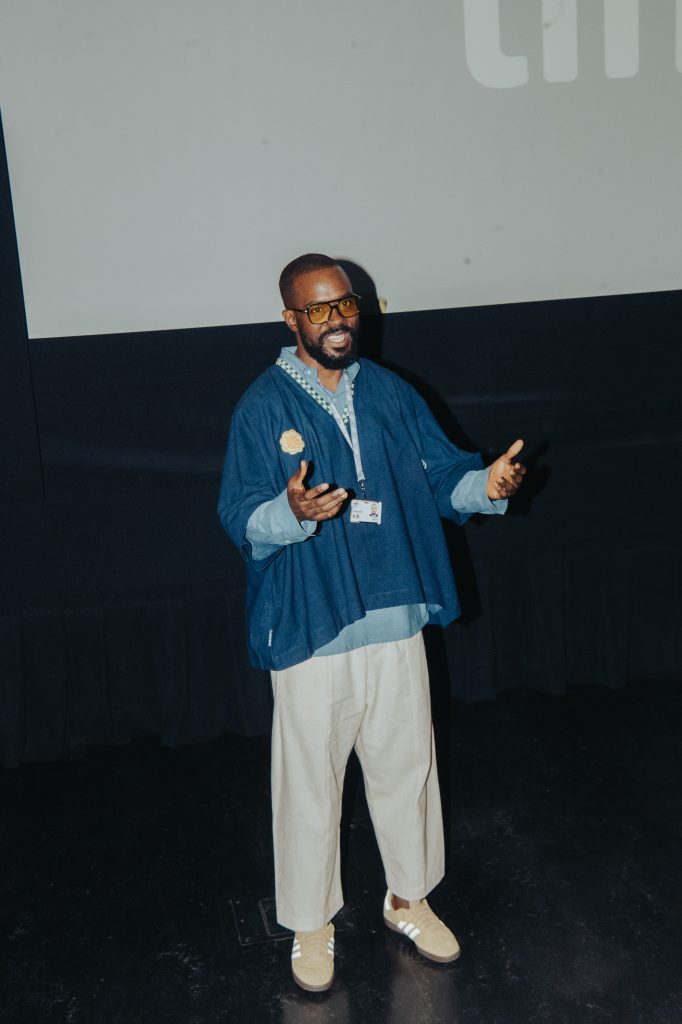
How did you get into TIFF this year? Was it through submission platforms like FilmFreeway or another route?
Tolu: I had planned to attend TIFF this year, but the chance to screen Bam Bam came in a very unexpected way. Another festival we really wanted to get into didn’t accept the film, and because we spent so long refining the edit, by the time we locked the picture in August, TIFF’s official selection had already closed.
But then the submissions team told me about the market screening program. That meant showing the film directly to accredited industry delegates – producers, festival programmers, sales agents, buyers, distributors. And it clicked immediately: this was actually a smarter way to bring Bam Bam into TIFF, putting it right in front of the people I wanted to reach, who had decision making power to get it right in front of the audience where we want it.
I applied literally the day before the deadline, then waited anxiously for a few days. When it was approved, I had just about a week to prepare, which was nerve-wracking, but also thrilling, because it meant we had a real shot at putting Bam Bam on the map at one of the biggest stages in the world.
TIFF is one of the biggest film festivals in the world. What does being part of it mean to you, both personally and professionally?
Tolu: TIFF is one of the biggest film festivals in the world, and for me, the first thing it gives you is a sense of possibility. Seeing your work take space alongside projects from some of the best filmmakers alive, and realizing that even those ahead of you share many of the same struggles; it makes you feel seen, and it gives you the courage to keep going.
One of the most powerful moments for me was a session called Short Cuts to Features. Hearing filmmakers who once screened a short at TIFF talk about how they later returned with features – and how they made that leap – was incredibly empowering. Their journeys were all unique, but the core challenges were very familiar.
On the professional side, I learned a lot from conversations about producing and financing. The Canadian and European systems differ from the American one, and all of them differ again from Nigeria, which has some unique challenges neither of the other environments have to contend with. But seeing how projects get put together elsewhere, and imagining how parts of those models could be adapted to build films back home, was eye-opening.
Behind the glamour of festivals, there’s often a lot of hard work and learning moments. Can you share a behind-the-scenes experience at TIFF that really stood out to you?
Tolu: What really stood out to me at TIFF was the sheer scale of it. Most of the festivals I’ve attended before were smaller, very community-driven. So I expected something similar. But TIFF takes over the whole city. Everywhere you turned, people were there for the festival. That was exciting, but also overwhelming.
For me, the hardest part was networking. I’m a friendly person, but walking up to strangers isn’t natural for me, and in Nigeria, that’s not really encouraged either. But at TIFF I had to push myself, because I was essentially marketing my film. To my surprise, people in Toronto were incredibly open. You’d say hello in a line or at a café, and suddenly you were having a real conversation, sometimes with people deeply placed in the industry. That was encouraging.
At the same time, I learned very quickly that you can’t do it all. TIFF has so much happening at once – hundreds of films, dozens of panels, endless opportunities to network. If you try to be everywhere, you end up scattered and exhausted. After just a couple of days of nonstop conversations, I realized my energy wasn’t infinite. And without a plan, I sometimes found myself drifting, unsure of what to prioritize.
That was a big wake-up call: You have to know what you want out of the experience and show up with intention. If your goal is to meet potential collaborators or sales agents, then maybe your time is better spent at industry mixers and conferences. If your goal is to grow as a filmmaker, then watching films, especially by filmmakers your level – and staying for their Q&As – can be a goldmine of insight.
And the truth is, both have value. Some of my most important growth these past couple of days have come from being in a cinema and absorbing the work of others; but also I have met some really great people and had some interesting conversations that show me the opportunity in this space, and inform what I want to do next. The real trick is balancing the two, based on your energy, your goals, and the stage of your project.
The real lesson for me was that a festival isn’t about doing everything, it’s about doing the right things for where you are and where you want to go.
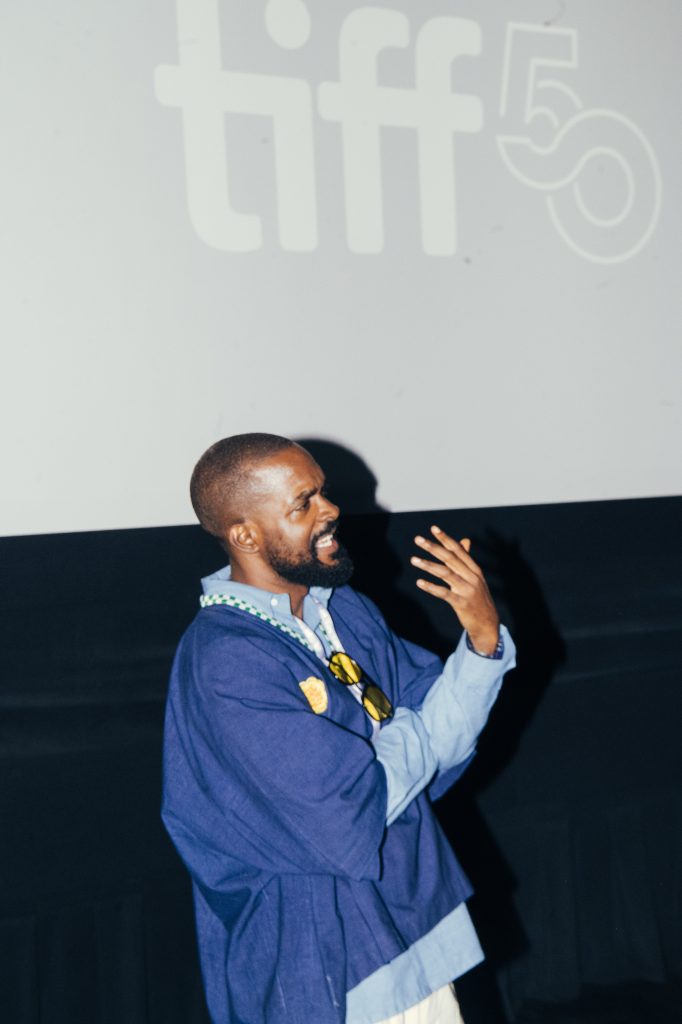
How has attending TIFF shaped the way you see yourself as a filmmaker and influenced the direction of your work?
Tolu: TIFF really pushed me to embrace my identity as a filmmaker. Being surrounded by so many peers and mentors who live and breathe cinema helped me own that title fully – not as something conditional on results, but as a craft and a calling. And once you own it, you start moving differently. Opportunities open up because people sense that confidence.
It also inspired me to dream bigger. Seeing the scale of projects on display and the ambition of other filmmakers made me realize I can push further, not just in the stories I tell, but in how I develop and position them.
For me, that begins with Bam Bam. TIFF showed me that a short like this can be more than a one-off, it can be a launchpad. We’re already exploring the IP’s expansion into a series and a feature, building on the world we created. At the same time, I’m developing my debut feature Man of the House and other exciting projects on our slate.
On a practical level, TIFF gave me insight into how projects actually get built to reach these stages. From financing models to producer relationships, I learned what it takes to move from idea to execution at an international level. And meeting people who could become partners on that journey is already shaping the way I think about the future of my work.
What advice would you give to young African filmmakers who dream of having their films showcased on such global stages?
Showing a film at TIFF is powerful for optics. It’s prestigious, it boosts your profile, and it tells the world your work can stand alongside the best. But that prestige doesn’t always translate into sales. If selling your film is the goal, you’ll need a different approach – things like having a sales agent, setting up meetings in advance, and positioning the film for deals.
TIFF also runs in phases. The first half is very industry-focused – buyers, sales agents, producers are all there. After that, the energy shifts toward premieres and audiences. If you want to tap into the industry side, you really need to plug in early.
And then there’s networking. Yes, reach out to people ahead of you – but do it with the mindset of what you can give, not just what you can get. And don’t underestimate networking with your peers. Horizontal connections are a game changer. Seeing the kind of films they’re making under similar circumstances pushes you to do more, and sharing those struggles gives you the courage to keep going.
At the end of the day, being able to say your film screened at TIFF – one of the biggest festivals in the world – is both a badge of honor and a door opener. It changes how people see you, but more importantly, how you see yourself. And that’s worth chasing.
Tolu’s journey at TIFF 2025 with Bam Bam is a reminder of the power of African stories to resonate on global stages. And while this interview offers a glimpse into his experience, the heart of it all lies in the film itself.
Watch the full trailer for Bam Bam here:

